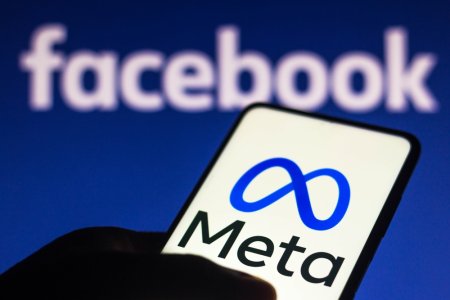Media executive warns of Meta decision’s ‘devastating impact’ on Aussies
By
Seia Ibanez
- Replies 84
The digital revolution has brought an era where news is not just consumed at the breakfast table or on the evening couch but scrolled through on smartphones and shared via social media platforms.
One of these platforms, Facebook, owned by the company Meta, has become a hub for accessing news content.
However, a media giant executive said a recent bombshell decision by Meta threatens to upend the fabric of Australia's news landscape.
Meta, the company behind social networking giant Facebook, announced that it will discontinue its commercial agreements with Australian media companies.
According to Michael Miller, Executive Chairman of News Corp Australia, this will likely lead to a substantial cutback on the breadth and depth of news accessible to Australians on the platform.

The financial implications are stark. Miller said the estimated that Meta was paying Australian media $250 million annually—a figure that represents a lifeline for many publications.
He said these funds have enabled the sustenance of rural and regional reporting hubs, ensuring that smaller communities stay connected and informed about local developments, issues, and governance.
Without this funding, there is the grim prospect of job losses, newspaper closures, and a troubling void in local news coverage.
‘The Australian government must protect these smaller communities who will be the real victims of Meta’s decision to not compensate publications for the local news they produce,’ Miller said.
‘Meta’s move will significantly affect our business,’ said Managing Director Tony Kendall of Australian Community Media, Australia’s largest publisher of rural and regional titles.
‘It will also, sadly, fuel the explosion of fake news and other junk proliferating on social media.’
Moreover, Meta's move underscores a broader tension between expansive tech firms and national jurisdictions.
In 2021, the Australian government took a firm stance with the News Media Bargaining Code, encouraging digital platforms to voluntarily negotiate a ‘fair price to pay to publish the news of an Australian news business and/or corporation’.
‘Without the payments by Facebook to publishers for using their journalism, the industry would have had no choice but to cut back on its resourcing and coverage of many local events,’ Miller said.
‘And don’t be fooled by the claims of Meta, its parent company, that few Australians are accessing news on their Facebook platform. Meta is just gilding the lily—and knows it.’
Miller debunked one of Meta’s frequent claims about the value of news.
‘Meta says only three per cent of its feed is comprised of news article links,’ he said.
‘But this dramatically understates the role of news on Facebook as it ignores images, videos and other forms of news content.’
‘Even if you accept the three per cent as fact, Meta’s market value is over $1.9 trillion dollars. Three per cent of $1.9 trillion is $57 billion, meaning the news industry, even with Meta’s understated figures, creates huge value for Meta’s enormous profit coffers,’ he added.
Miller stressed that Meta’s announcement showed a ‘total disregard for Australian law and the comprehensive work done by the Australian Competition and Consumer Commission (ACCC)’.
‘It shows how little it cares about Australia, the Australian people, and its customers, the very people who use Facebook on a daily basis,’ he said.
Communications Minister Michelle Rowland and Assistant Treasurer Stephen Jones (who oversees The News Media Bargaining Code) said in their joint statement: ‘Meta’s decision to no longer pay for news content in a number of jurisdictions represents a dereliction of its commitment to the sustainability of Australian news media.’
‘The Australian government is committed to The News Media Bargaining Code and is seeking advice from Treasury and the ACCC on next steps.’
Prime Minister Anthony Albanese supported Australian media, saying, ‘We will always stand up as a government for Australian media interest and media diversity.’
Meta is no stranger to controversy.
In 2022, it agreed to pay a total of $1.1 billion to Facebook users after it reportedly let third parties access not only users’ data but also their friends’ data.
What led to the massive payout? Read more about it here.

Do you use Facebook to check news updates? What are your thoughts on this development? Let us know in the comments below!
One of these platforms, Facebook, owned by the company Meta, has become a hub for accessing news content.
However, a media giant executive said a recent bombshell decision by Meta threatens to upend the fabric of Australia's news landscape.
Meta, the company behind social networking giant Facebook, announced that it will discontinue its commercial agreements with Australian media companies.
According to Michael Miller, Executive Chairman of News Corp Australia, this will likely lead to a substantial cutback on the breadth and depth of news accessible to Australians on the platform.

Meta announced that it will not renew commercial agreements with Australian media. Credit: Shutterstock
The financial implications are stark. Miller said the estimated that Meta was paying Australian media $250 million annually—a figure that represents a lifeline for many publications.
He said these funds have enabled the sustenance of rural and regional reporting hubs, ensuring that smaller communities stay connected and informed about local developments, issues, and governance.
Without this funding, there is the grim prospect of job losses, newspaper closures, and a troubling void in local news coverage.
‘The Australian government must protect these smaller communities who will be the real victims of Meta’s decision to not compensate publications for the local news they produce,’ Miller said.
‘Meta’s move will significantly affect our business,’ said Managing Director Tony Kendall of Australian Community Media, Australia’s largest publisher of rural and regional titles.
‘It will also, sadly, fuel the explosion of fake news and other junk proliferating on social media.’
Moreover, Meta's move underscores a broader tension between expansive tech firms and national jurisdictions.
In 2021, the Australian government took a firm stance with the News Media Bargaining Code, encouraging digital platforms to voluntarily negotiate a ‘fair price to pay to publish the news of an Australian news business and/or corporation’.
‘Without the payments by Facebook to publishers for using their journalism, the industry would have had no choice but to cut back on its resourcing and coverage of many local events,’ Miller said.
‘And don’t be fooled by the claims of Meta, its parent company, that few Australians are accessing news on their Facebook platform. Meta is just gilding the lily—and knows it.’
Miller debunked one of Meta’s frequent claims about the value of news.
‘Meta says only three per cent of its feed is comprised of news article links,’ he said.
‘But this dramatically understates the role of news on Facebook as it ignores images, videos and other forms of news content.’
‘Even if you accept the three per cent as fact, Meta’s market value is over $1.9 trillion dollars. Three per cent of $1.9 trillion is $57 billion, meaning the news industry, even with Meta’s understated figures, creates huge value for Meta’s enormous profit coffers,’ he added.
Miller stressed that Meta’s announcement showed a ‘total disregard for Australian law and the comprehensive work done by the Australian Competition and Consumer Commission (ACCC)’.
‘It shows how little it cares about Australia, the Australian people, and its customers, the very people who use Facebook on a daily basis,’ he said.
Communications Minister Michelle Rowland and Assistant Treasurer Stephen Jones (who oversees The News Media Bargaining Code) said in their joint statement: ‘Meta’s decision to no longer pay for news content in a number of jurisdictions represents a dereliction of its commitment to the sustainability of Australian news media.’
‘The Australian government is committed to The News Media Bargaining Code and is seeking advice from Treasury and the ACCC on next steps.’
Prime Minister Anthony Albanese supported Australian media, saying, ‘We will always stand up as a government for Australian media interest and media diversity.’
Meta is no stranger to controversy.
In 2022, it agreed to pay a total of $1.1 billion to Facebook users after it reportedly let third parties access not only users’ data but also their friends’ data.
What led to the massive payout? Read more about it here.
Key Takeaways
- Meta's decision not to renew commercial agreements with Australian media could have severe consequences for Australians' access to trusted news, according to News Corp Australia Executive Chairman Michael Miller.
- Miller said lack of compensation from Meta to publishers for their content may lead to job losses, closures of titles, and a decrease in local news quality, particularly affecting rural and regional communities.
- The News Media Bargaining Code established by the Australian government aims to ensure digital platforms fairly compensate media companies for their content.
- The Australian government, including Prime Minister Anthony Albanese, expressed strong support for media diversity and is considering how to respond to Meta's actions, reflecting their commitment to the sustainability of the Australian news industry.








